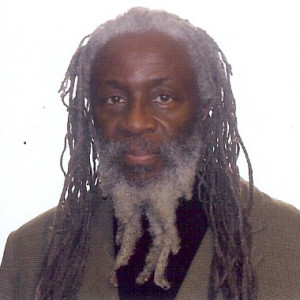Communications for Lightworkers: The Nature of Communication
All living beings communicate continually and constantly. Each of us is constantly expressing and sharing our conscious and unconscious wants, desires, perceptions and preferences with every other being we encounter. Communication is the vehicle through which we connect with each other and negotiate our relationships. While verbal communication can be the most direct form of communication, the nonverbal expressions of tone, frequency, pitch, body language, etc. are the most frequent form, comprising as much as eighty-five percent of our communications. Most of us have had the experience of hearing one thing out of a person’s mouth and perceiving an opposite message from their demeanor and behavior. The wise strive for congruence between verbal and nonverbal messages.
Communication can be either within the self or with others. Communication is the way we send and receive messages that are vital to the process of working together. Whether with self, in dyads, families or between nations, the mandate for us as humans to improve our communications and get better at working together is crucial.
The communication with self is a major part of Swadhyaya (Self-study). The primary skill in communications is listening–to what is said, for meanings, for intentions, and most of all for understanding. Maturity and growth require that we become increasingly better at listening to the deeper parts of our self as well as others. To listen only to surface communications is to miss the essence of the message. For example, someone may say something offensive to you but if you listen deeply enough you hear and can choose to respond to the hurt that motivates the offense.
Communications appear easier when we are interacting with someone whose perspective we agree with. However, opportunities for expansion of thoughts and ideas increase when we communicate with someone with divergent points of view. In essence our communication processes and patterns with others simply mirror our processes and patterns of communications with ourselves. When we are agitated, intolerant, or annoyed with another it is because the other reminds us of a part of ourselves that we have yet to make peace with.
Listening is a skill that is easily taken for granted and is frequently underdeveloped. True listening requires one to be open and vulnerable. Listening requires us to let go of our attitudes, positions and beliefs in order to hear and accommodate another’s message. Too often we presume we know and our listening is only cursory. We spend our interaction planning our rebuttal (I mean input) without actually attending to the other’s message.
Listening requires an open heart. Listening requires that we release our agenda and focus with single-pointed attention. Stillness, acceptance, faith and courage are all needed for an open and honest listening process. When we give energetic practice to our listening we develop increasingly deeper and more accurate empathy. We also develop a depth of understanding that goes beyond cultural norms and limitations. And when we become better at listening to ourselves and others, we also become better at listening to the Divine – for in actuality it is all One.
Listening
Let go of the definitions, labels, and meaning
Release the desire, need, and inhibitions
Go deeper beyond the I can, can’t, don’t want to
Go deeper, touch your essence, foundation, beginning
Fly over the opinions, opposition, the obstinacy
Fly beyond contemporary, trendy and now
Leave knowing, unknown and knowledge
There is more, better, Everlasting.
Let go – Fly above the madness
Release all preference and power
Be like the water, receptive and nurturing
Be like the air, silent yet filling all voids
It requires stillness, to hear, to understand
Listening requires openness, faith and courage
It requires the vulnerability to risk, not knowing
Listening requires courage to assume responsibility for what is heard
 Welcome to our new Satsang series, “Communications for Lightworkers”.
Welcome to our new Satsang series, “Communications for Lightworkers”.
Please send questions and comments to Henry Gregory at hankgreg49@gmail.com
Remember, effective and compassionate communications are essential for the development and nurturance of unity in the Homa community.
Henry Gregory, Jr. Ph.D. is a clinical psychologist with extensive experience and expertise as a clinician, educator, trainer, consultant and researcher in a number of service areas including substance abuse, HIV/AIDS, criminal justice, juvenile justice, child welfare, school-based mental health, and behavioral health. Currently, Dr. Gregory is an assistant professor at the University of Maryland, School of Nursing, teaching individual and family therapy.
He also provides consultation and training to public and private agencies and direct services to individuals and families through his own organization, the Rafiki Consortium, LLC. www.rafikiconsortium.com
Dr. Gregory has practiced Agnihotra and the Fivefold Path for the past 35 years.
